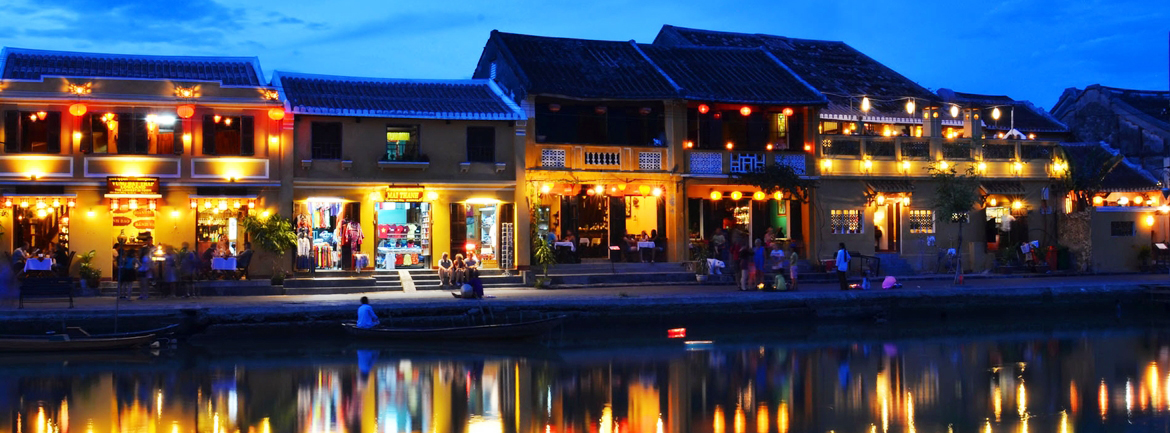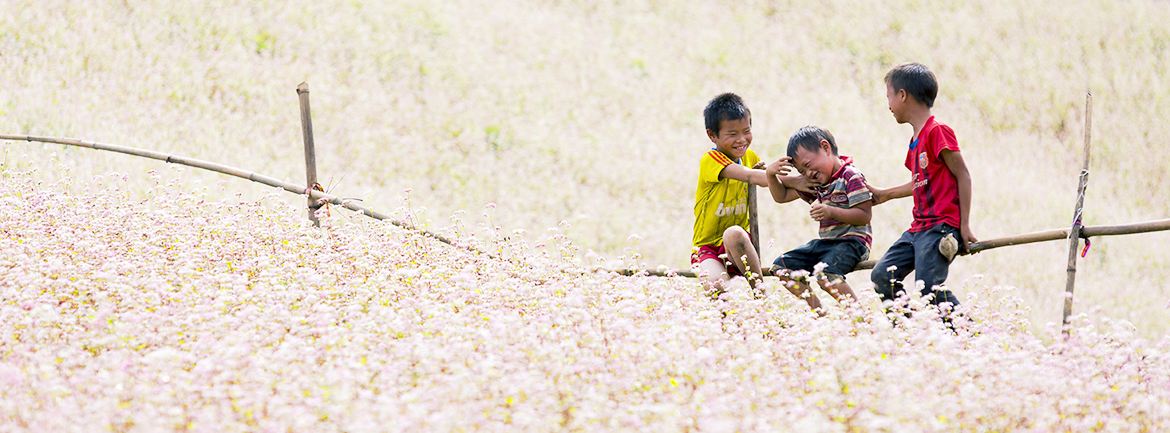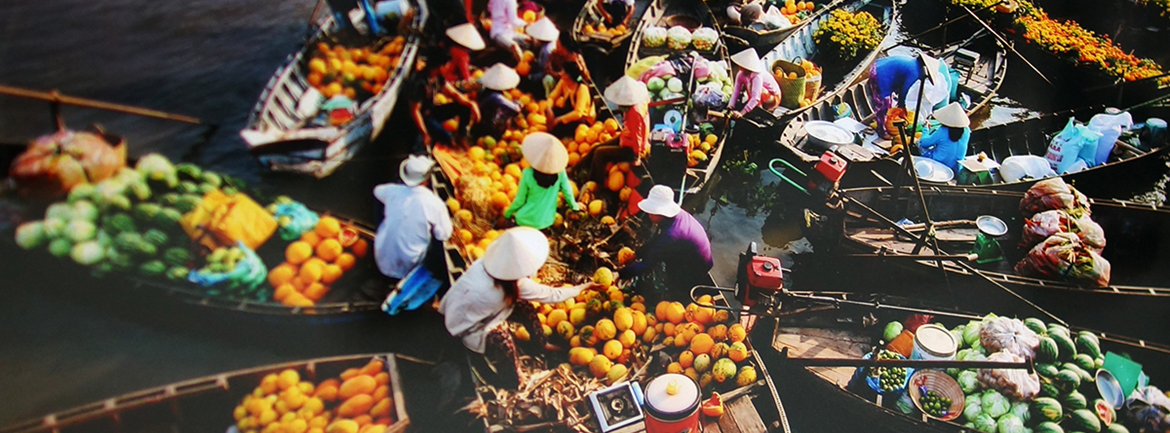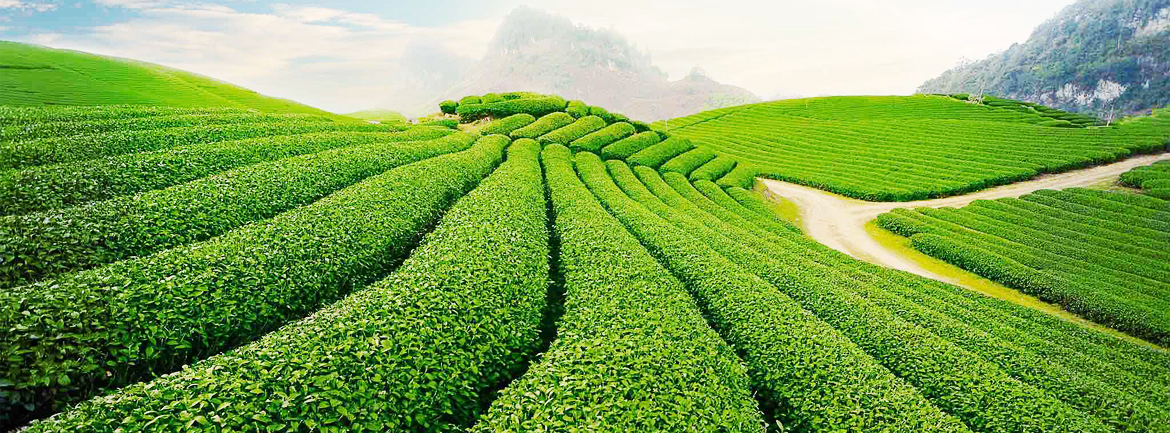Festival
I. The holidays
-
New Year: January 1st.
-
Lunar New Year: the last 3 days of December and first 5 days of January of the lunar calendar. It is the largest traditional Vietnamese festival.
-
Hung Kings Commemorations: March 10th of the lunar calendar
-
Liberation Day/Reunification Day: April 30th. This day in 1975 the Vietnam War ended.
-
Labor Day: May 1st.
-
Vietnamese National Holiday: September 2nd.
II. Typical festivals in each region
1. The Northwest
-
Long Tong Festival: a very original traditional festival of the Tay ethnicity to seek for happiness, a good harvest, a healthy life and so on. It takes place in January-February of the lunar calendar (according to every tribe). Ethnic groups organize traditional games, for example throwing balls of cloth or hide-and-seek.
-
White Bauhinia Festival: typical traditional party of ethnic groups with Thai roots. It is organized in January of the lunar calendar when the white bauhinia begins to bloom and covers the entire Northwest region. This festival is the festival of couples, families and the hope for a good harvest. Couples will sing love songs during this festival.
2. The Red River Delta
-
Festival of the Perfume Pagoda: the festival lasts of January 6th until the end of March of the lunar calendar at the Perfume Pagoda, My Duc, Ha Tay. This is the longest holiday season and the celebrations last the longest compared to other festivals in Vietnam. Buddhist pilgrims come to the Perfume Pagoda during this period to pray for happiness and good luck but also to visit the mountainous landscapes.
-
Hung Kings Commemoration: The party takes place from March 5th to March 10th of the lunar calendar in the historic site of the temple of the Hung Kings, Viet Tri city, Phu Tho. The purpose of this ceremony is to remember and pay tribute to the contribution of the Hung kings who are the traditional founders of the nation. A procession starts at the foot of the mountain and stops at every small temple before reaching the temple. Here pilgrims offer prayers and incense to their ancestors.
-
Lim festival: It's the festival of Quan Ho singing, which has become UNESCO Cultural Heritage in 2009. In order to enhance and promote the tradition of Quan Ho singing, the Lim festival is eagerly celebrated among local residents as well as pilgrims from every part of the country around the 12th or the 13th day of the first lunar month.
3. The Center
-
Hué Festival: The biggest festival in the center of Vietnam is organized every two years. During this festival, there are numerous activities to relive the cultural values and the festivals of the former imperial city of Hué. Thanks to this festival, there are several traditional craft trades that remain.
-
Fireworks Festival in Da Nang: It takes place once every two years at the end of April, and then the sky of Da Nang is illuminated by the lights of fireworks. Several international teams also participate in this competition. Besides, other activities are organized, such as traditional boat races, art exhibitions and floating lanterns.
-
Elephant Racing Festival: The race takes place every year in the village of Buon Don or in the woods along the Sevepok River in March of the lunar calendar. Attending the festival, visitors can feel the boisterous atmosphere of the echo of gongs, the martial spirit of the M'nong ethnic people and watch the spectacular performances of the elephants from the Central Highland forests.
4. The South
-
Ba Den festival: The Spring Festival of Ba Den Mountain is an annual event which takes place during march of the lunar year. Even so, the main ceremonies are carried out on the 18th night and the 19th day of that month. This is a traditional festival of the communities residing in and near the Nui Ba complex.
-
Ba Chua Xu festival: The biggest folk festival of the South of Vietnam. It takes place from 23 to 27 April of the lunar calendar. During the festival at the beginning of the rainy season, the Lady of the Realm statue is bathed and her robe is changed. It is accompanied by a series of sacrifices performed by the village’s cult committee. An invocation is performed to receive peace and prosperity from the goddess, and series of opera performances take place.
-
Ok Om Bok Festival: Ok Om Bok festival (another name: Moon Ritual, because this festival is held when it’s full moon and starts as soon as the moon gets visible) of the Southern Khmer ethnicity in the provinces: Ca Mau, Soc Trang, Bac Lieu, Kien Giang, Hau Giang, Tra Vinh, Vinh Long. This tradition originates from the popular belief that the moon protects the crops, so the Khmer celebrate the Ok Om Bok festival at full moon to show their gratefulness to the moon. In the following morning a boat race takes place, called "um tuk ngo", where unique boats carved from tree trunks are used.










